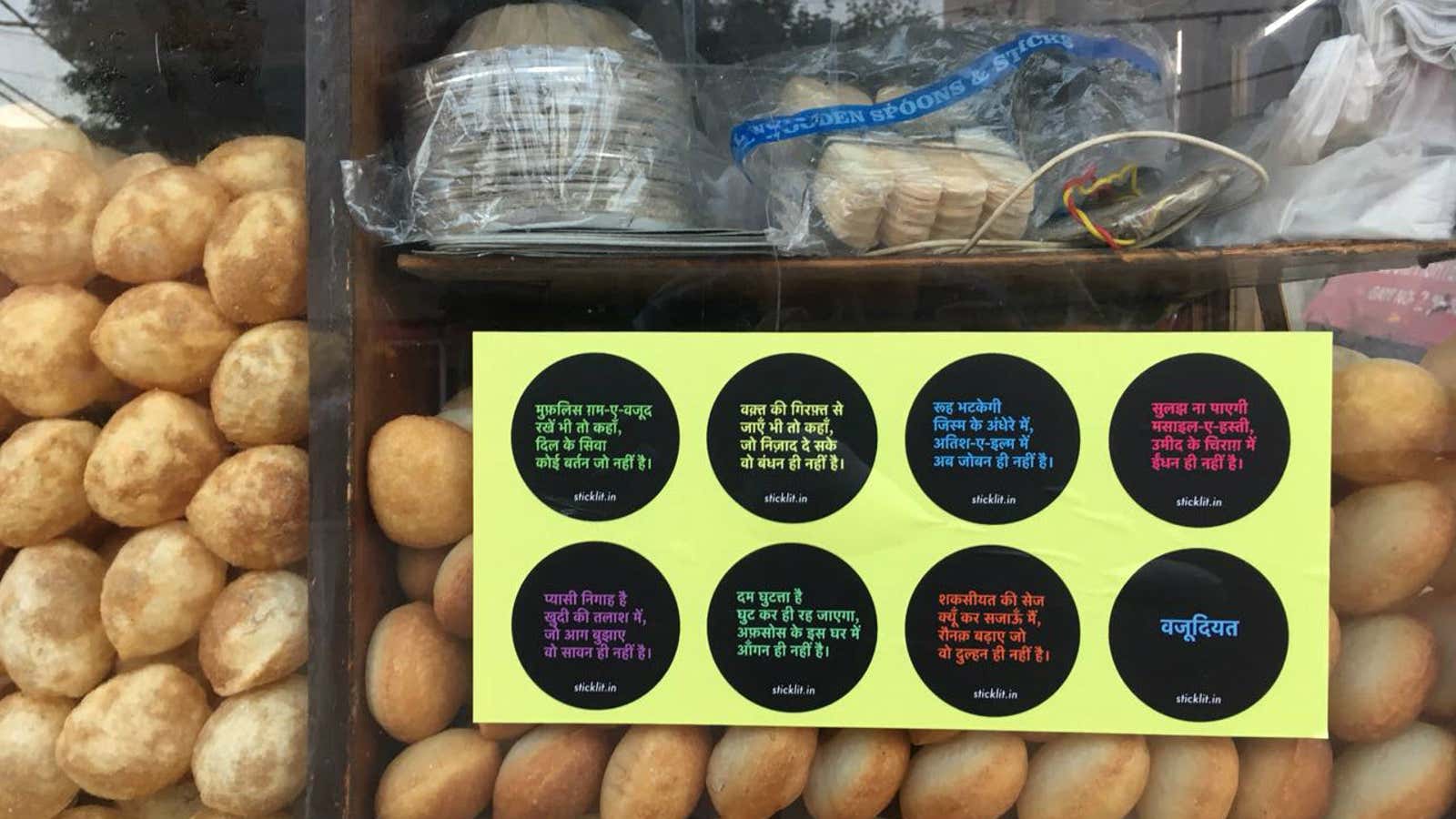In a country where textbooks are best-sellers, a movement is trying to bring literature and poetry to the streets—but not in book form.
StickLit, created by a group of local writers and artists, is working to build the world’s largest public library by turning delectable lines by writers such as Oscar Wilde, William Shakespeare, and a host of other lesser-known names—both in Hindi and English—into beautiful stickers, posters, and murals that are pasted in public spaces.
You might spot StickLit’s stickers at railway stations or street-side food stalls in New Delhi, Kolkata, Mumbai, Bengaluru, or even Darjeeling.
“We wanted to do an intervention that would bring the work of writers and artists and put it out there (so) people on the road, in the streets, can read it for free,” StickLit co-founder Manoj Pandey told Quartz.
Given the disparity in educational opportunities and the frenetic pace of urban life, many Indians don’t get to enjoy reading, the 33-year-old writer said. So, StickLit wants to democratise the act, turning reading into something anyone can do while, say, awaiting trains or having a snack.
In October 2017, along with co-founder and artist Nidhin Kundathil, Pandey started out with lines of fiction or poetry written by their friends. With help from Twitter and Instagram, what started out as an experiment gradually captured the attention of other literary-minded locals. They then began creating their own versions, besides printing out stickers from StickLit’s website and spreading them in their respective cities.
And the stickers are now getting noticed.
In December 2017, the StickLit team set its sights on Delhi’s Khirki Extension. It pasted lines about existentialism on a pani puri (an Indian street snack) vendor’s stall. Among those who read them and appreciated the ideas espoused was a rickshaw puller standing nearby, who reportedly responded with the words “Sahi bola hai (rightly said).”
That kind of reaction, Pandey said, proves that writing should be accessible to everyone. ”People are very receptive to things, it’s just that they don’t have equal opportunities,” he said.
Though there are fairly well-maintained state libraries across India, besides bookstores selling both new and second-hand editions, reading isn’t always actively encouraged by either parents or educators.
In the country’s rigid school curricula, literature and poetry aren’t a priority, leaving generations obsessing over mathematics and science. What’s worse is that millions of less-privileged Indians simply don’t have the money or time to spare on reading. And in any case, options in regional languages are far fewer than in English, a language read by just a fraction of the population.
Of course, it isn’t always easy to convince people that literature is a good thing. Pandey recalls a Delhi butcher’s apprehensions—he even feared arrest—over a StickLit poster put up in his shop. The sticker featured Oscar Wilde’s famous line from the preface to The Picture of Dorian Gray: “All art is quite useless.”
“The takeaway was that (the butcher) couldn’t read and that’s what the lack of basic education in India has done to the common man,” Pandey said.
StickLit, meanwhile, is gathering support from high-profile authors.
This week, for instance, it used former Indian minister Shashi Tharoor’s words on a wall at the Darjeeling railway station in West Bengal and was endorsed by the writer.
Booker Prize-winner Salman Rushdie, too, has signed on.
And the movement is now gradually spreading to places like London, Amsterdam, Philadelphia, and Kathmandu.
